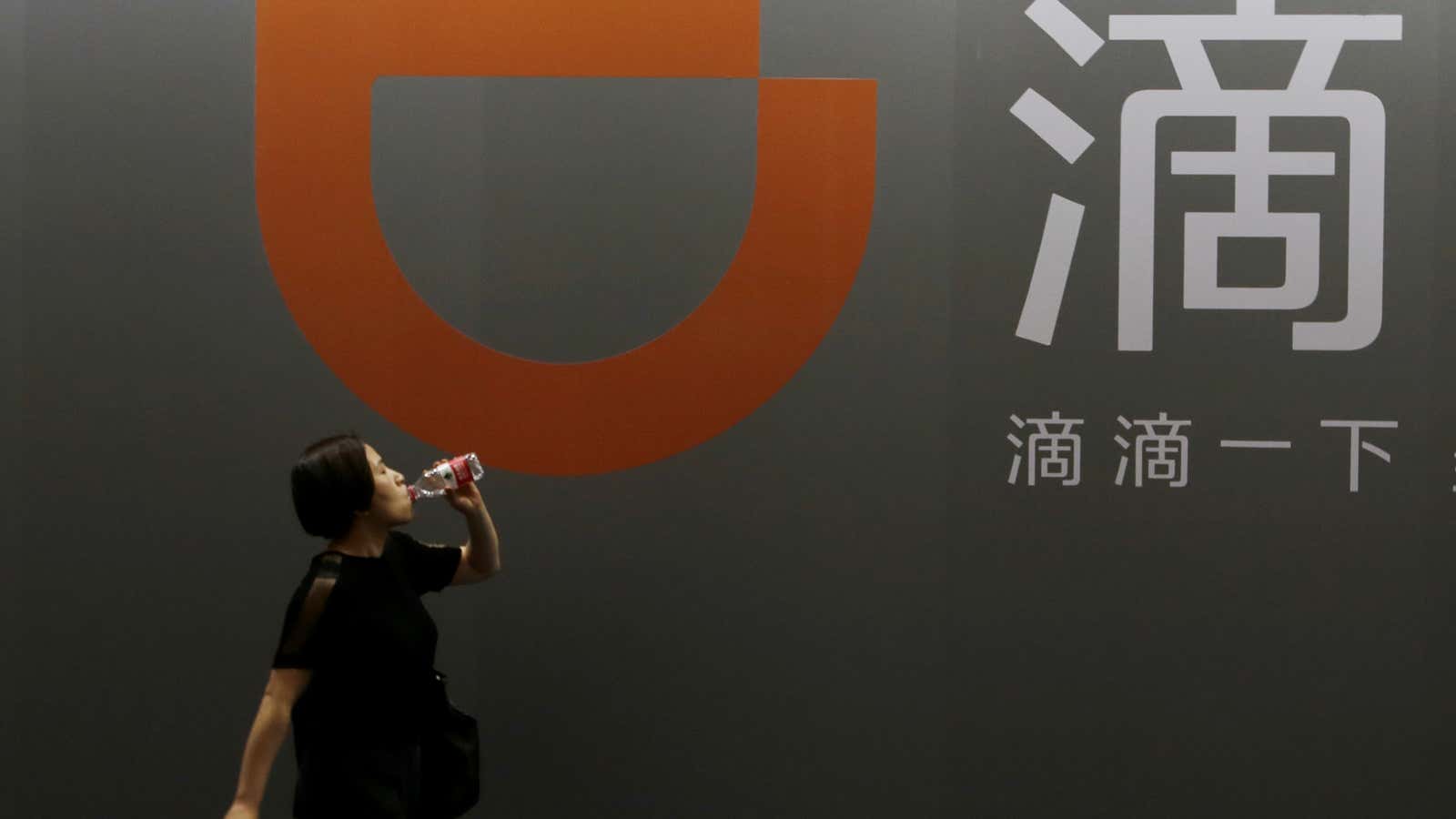Is Didi quitting the global “anti-Uber alliance”?
Didi Chuxing, China’s answer to Uber, announced today (June 15) it will expand into Australia starting June 25 in Melbourne.
That marks the newest overseas market for the company, after starting operations in Mexico in April, and investing in a local ride-sharing firm in Brazil in January. But more so than those forays, Didi’s Australia expansion further mangles the already-complicated web of rivalries and partnerships in the global ride-hailing sector, pitting the Chinese giant directly against companies it has funded.
In Australia, in addition to Uber, Didi will compete with two other ride-hailing companies. Ola, the largest Uber rival in India, entered the country last March with a Sydney launch, followed by Perth and Melbourne. Meanwhile, Taxify, which is popular in eastern Europe and parts of Africa, entered Australia in December.
Both of these firms have received investments directly from Didi. Didi contributed to a $500 million round for Ola in 2015 (though reportedly did not participate in a $1.1 billion round in 2017), and gave an undisclosed sum to Taxify in August 2017.
When asked about what Didi’s launch in Australia means, given its backing for Ola and Taxify, Didi told Quartz: “The ride-hailing industry is still a young business, and the potential for growth is substantial. Competition exists in ride-hailing, like in any flourishing industry.” Taxify and Ola did not immediately respond to Quartz’s request for comment.
Further complicating these relationships is SoftBank. The Japanese mega-investor owns stakes in Ola, Didi, Southeast Asia’s Grab, and as of last January, Uber.
Didi made inroads in Latin America first by investing in Brazil-based Uber rival 99, sharing some of its technology, and eventually acquiring the company outright (paywall). Until that deal, it had no cars of its own on roads there. It’s possible that Didi’s Australia launch marks a shift in its expansion strategy—away from merely investing in Uber rivals, and toward competing with Uber and other ride-hailing companies directly. If that’s the case, expect more launches outside of China to come.
